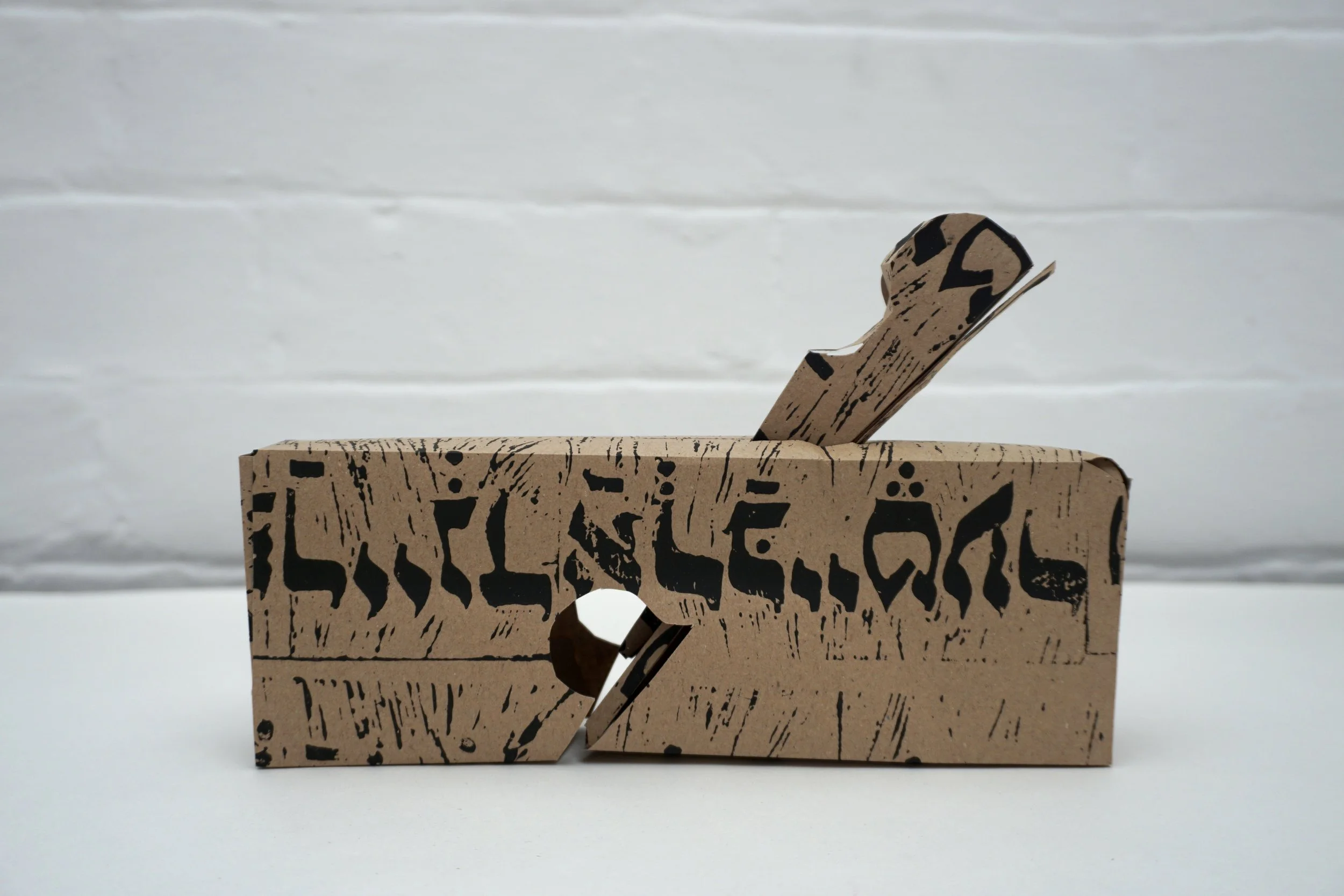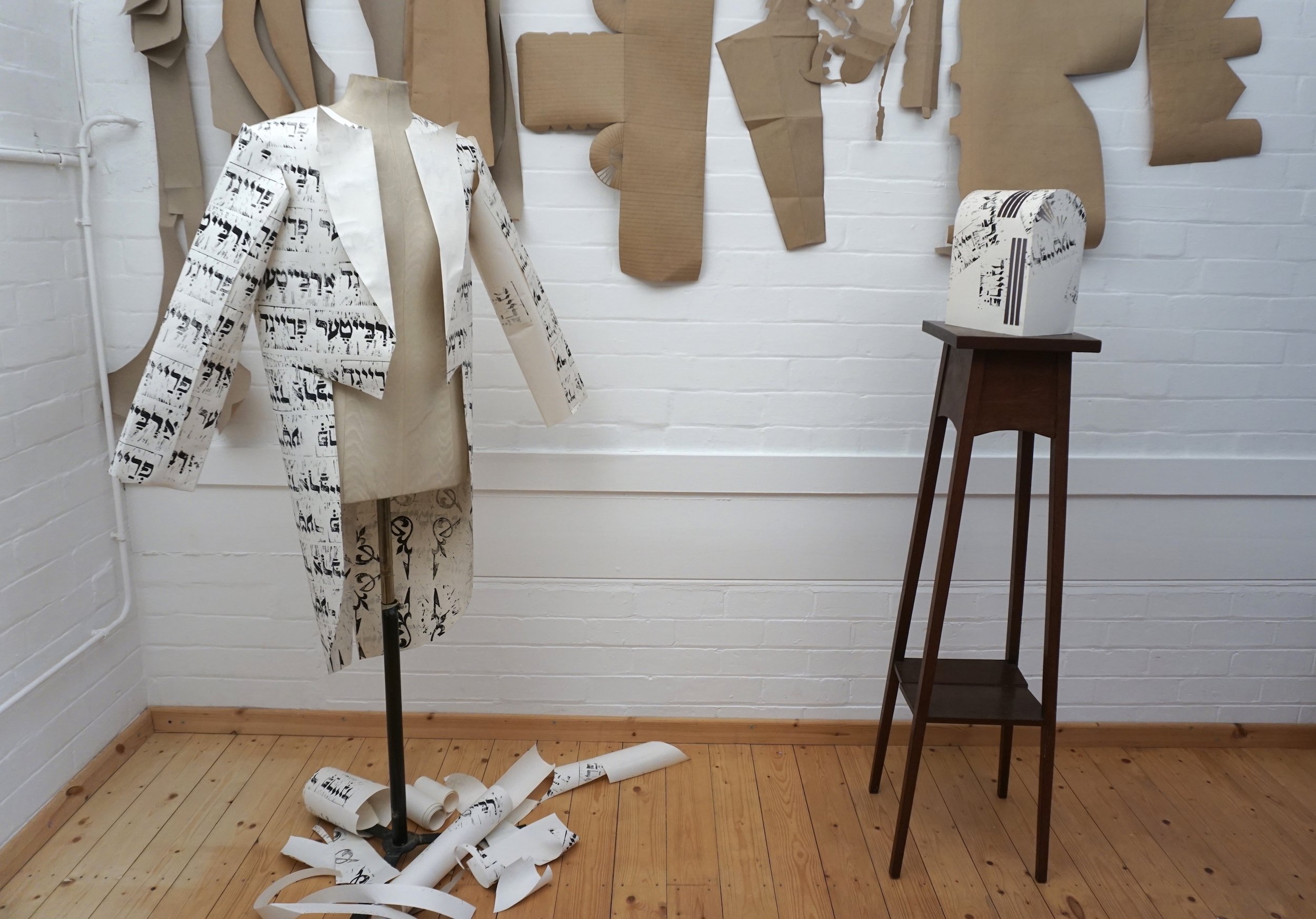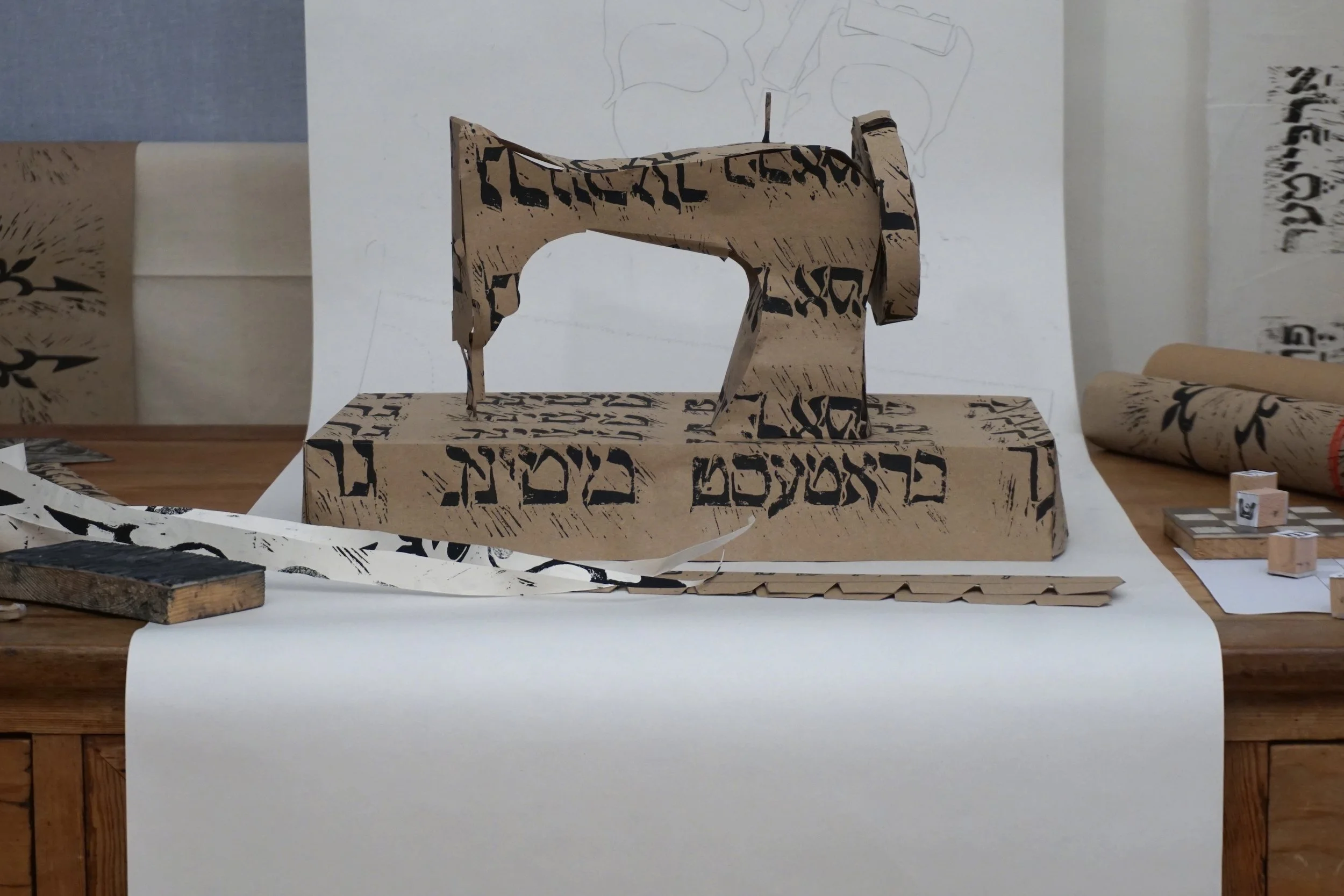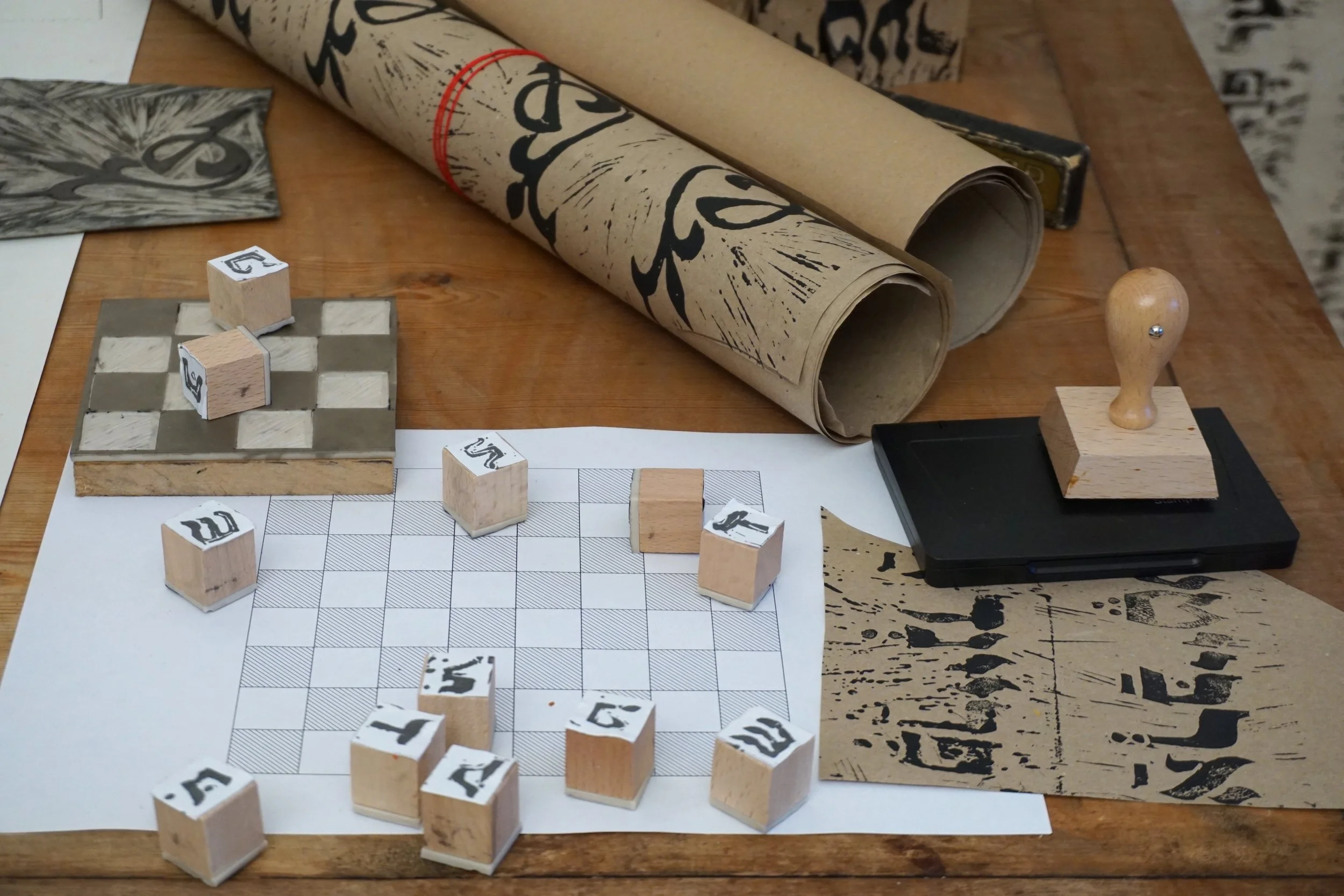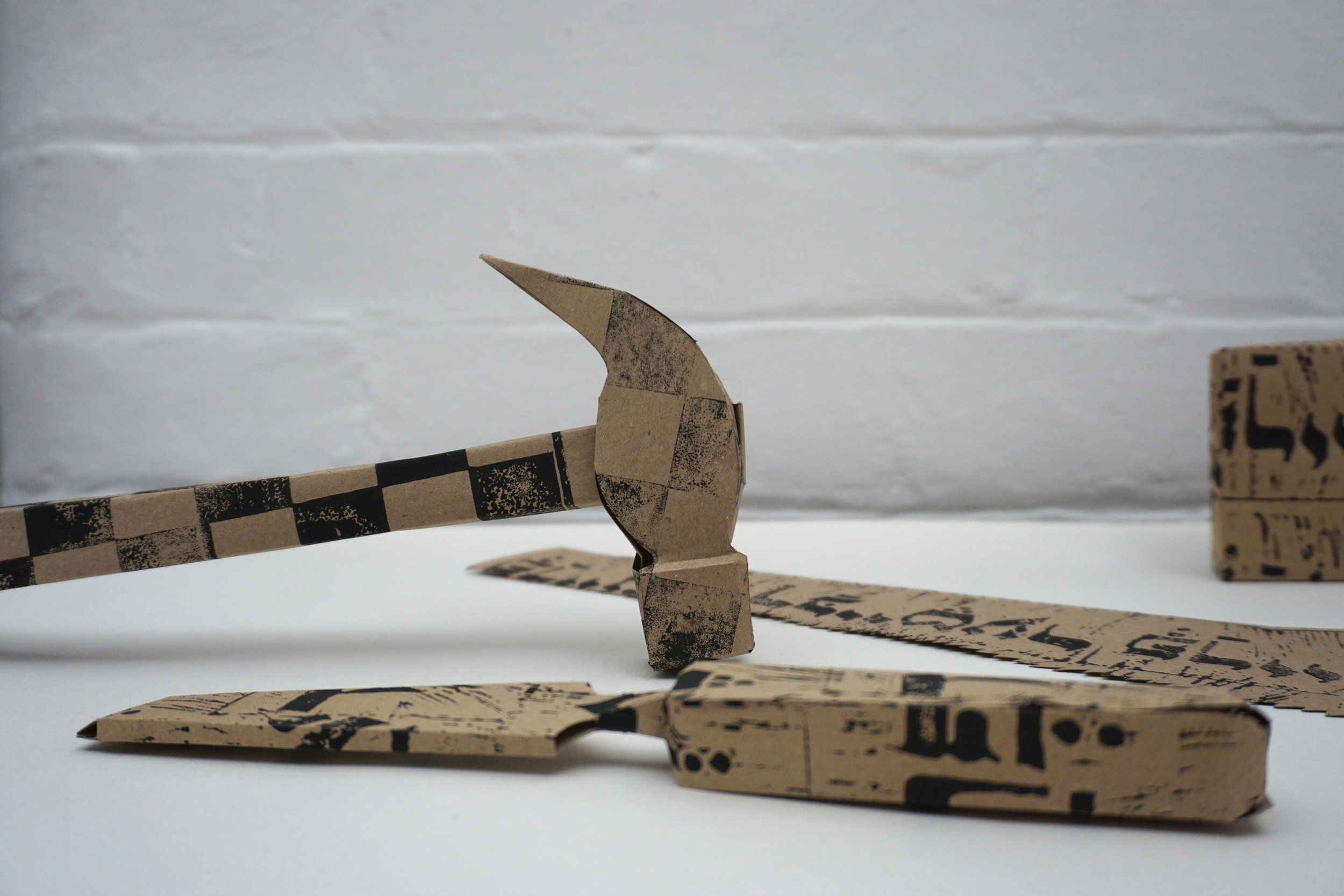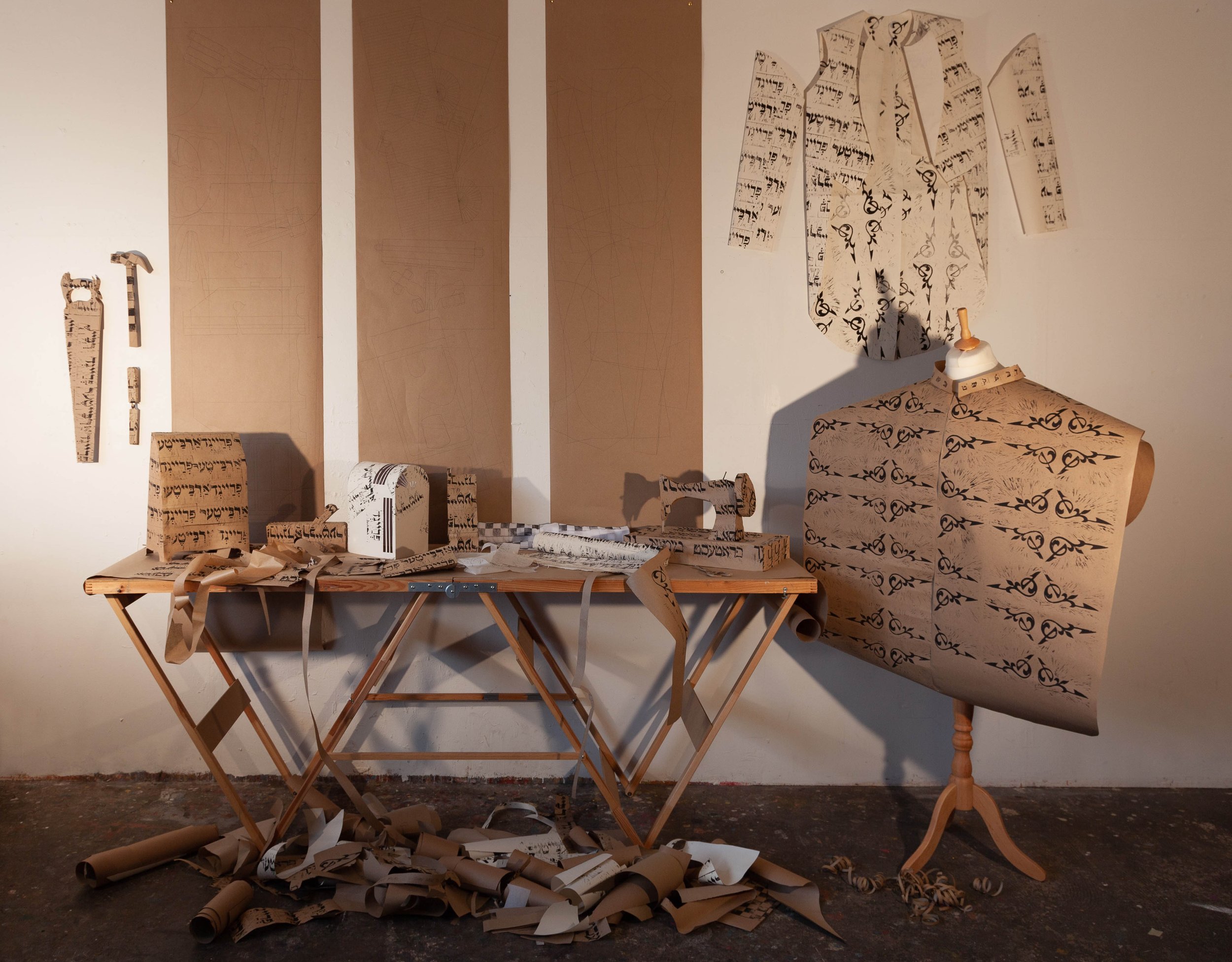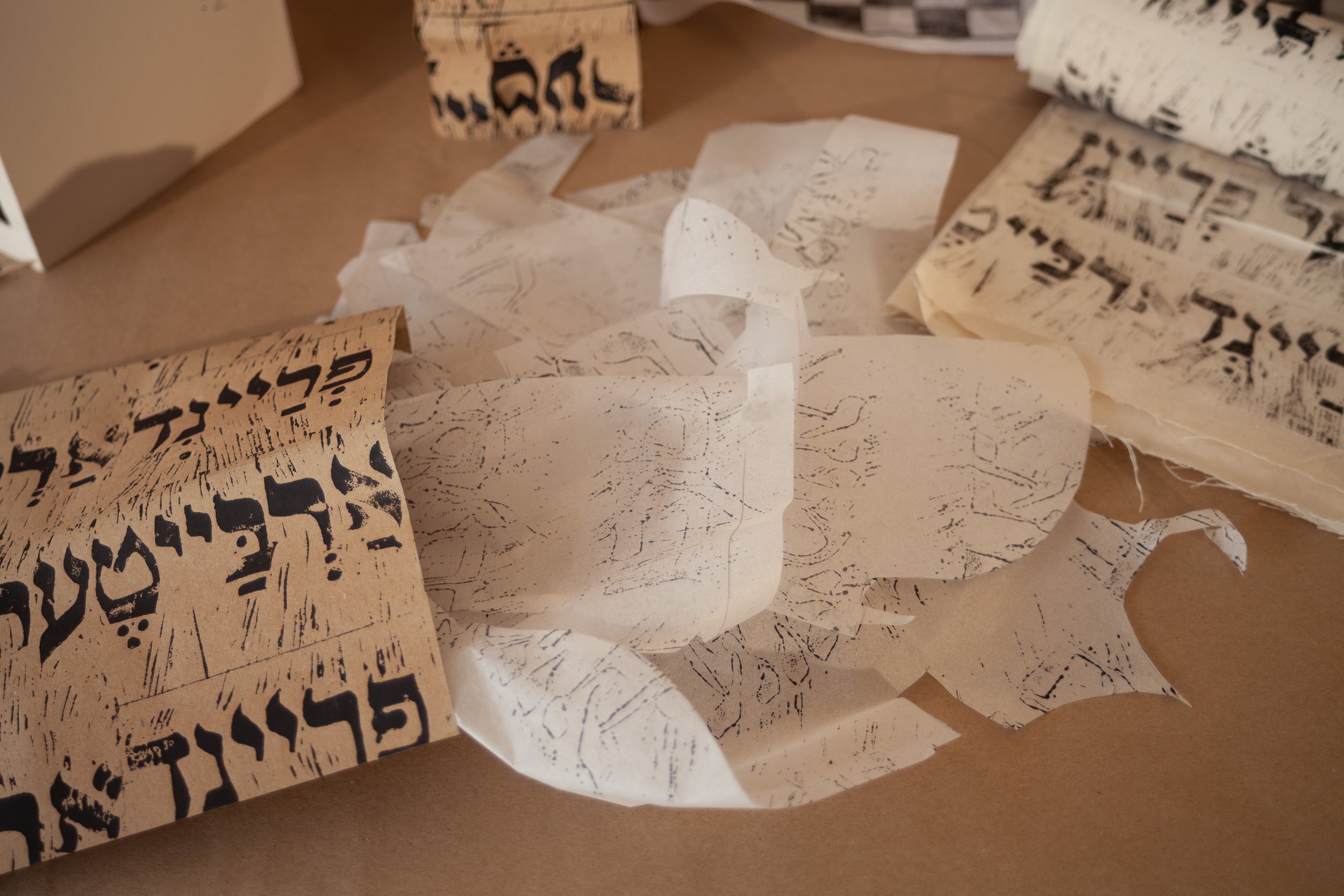CORRESPONDENCES
A body of research and artwork developed by Katy and Rebecca Beinart through a process of correspondence during the pandemic. First presented as an online exhibition in 2020, featuring sculptures, installation, performance and digital works that emerged from their long-term collaboration Origination.
The project explores family history and migration and this current iteration focuses on the story of the artists’ Jewish great-grandparents Morris (Moishe) and Sarah (Zlata) who left Eastern Europe in the 1900s to come to London and settle in the East End, joining a growing Yiddish-speaking community. The artists' research draws on oral histories collected by the family, archival material from the British Library and Jewish Museum London, and autobiographies and histories by Jewish East End writers. Personal stories of family and community intersect with the lively radical politics that flourished in the area in the early 20th century. Moishe, Zlata and their wider family worked as paper-bag makers, cabinet-makers and hairdressers, and like many other working class Jewish immigrants from Eastern Europe they were actively involved in politics and Trade Unions. A Yiddish anarchist newspaper, the “Arbeter Fraynd” (Workers Friend) was published in the East End at this time, and pubs, halls and print-shops in the area were known as meeting places for communist, socialist and anarchist groups.
Correspondences emerged through an ongoing conversation between the artists, via post, sending back and forth a handwritten scroll, paper patterns and print blocks, as well as through the contemporary correspondence of the online zoom call. Tim Ingold talks about correspondence “in the sense of not coming up with some exact match or simulacrum for what we find or the things and happenings going on around us, but of answering them with interventions, questions and responses of our own. It is as though we are involved in an exchange of letters.” (Ingold, 2015*) The literal and metaphorical correspondences that have formed the structure of the project came partly from the necessity of collaborating from two different places during a year of pandemic lockdowns. This process has also opened up a way of corresponding through time, connecting to ancestors and histories, using analogue technologies of communication as forms of exchange that take place slowly.
*Tim Ingold, ‘Foreword’, in Philip Vanini, ed. Non-Representational Methodologies: Re-Envisioning Research (Routledge, 2015)
https://origination-project.info/
Thanks to:
The Centre for Memory, Narrative and Histories at the University of Brighton for funding the research phase of the project.
Michael Shade for sharing family histories, documents and East End knowledge.
Kathrin Pieren, Collections Manager and Curator at the Jewish Museum London.
Morgan Quaintance for conversation on digital curation.
Mia Taylor, Five Years.
